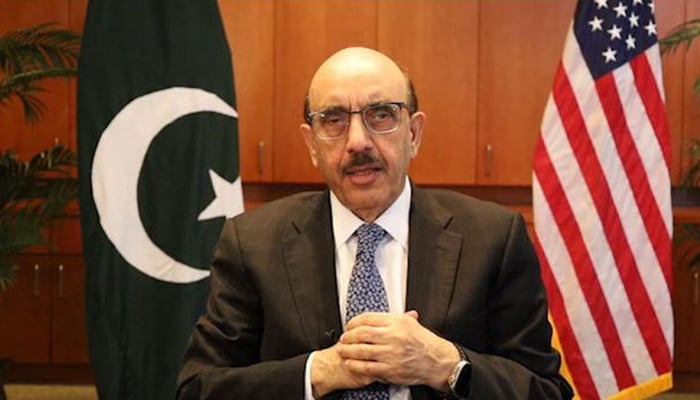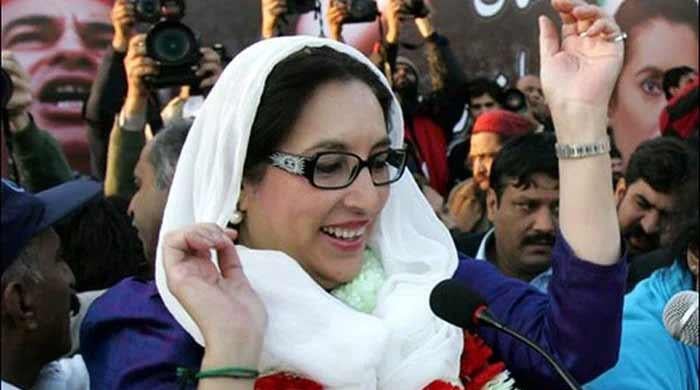Fair distribution under Indus Waters Treaty key to regional stability: Pak envoy to US
Pakistan is fully aware of severe challenges in energy and water security sectors, says Ambassador Khan
January 28, 2023

- Green Alliance project to help farmers, says Masood.
- Diplomat says Pakistan taking steps to enhance energy generation.
- He calls for fair distribution of waters under Indus Waters Treaty.
Pakistan's Ambassador to the United States Masood Khan Friday underscored the need for a fair and just distribution of water under the Indus Waters Treaty (IWT), saying it is key to water security and regional stability.
“Building a number of dams on the upper riparian parts of the rivers under Indian control eroded trust and creates myriad crises for Pakistan that included flooding, droughts, water scarcity, and disruption of energy supplies," Masood Khan noted.
"The outstanding issues must be resolved quickly and definitively,” the envoy said, while virtually attending a discussion on "Pakistan's Energy and Water Security Landscape" organised by Baker Institute, Rice University Houston as a keynote speaker
Khan's remarks came as the first hearing in a dispute between Pakistan and India pursuant to the IWT began on Friday at the Permanent Court of Arbitration after the Modi-led Indian government persistently refused to address the concerns Pakistan raised at the Permanent Indus Commission and during government-level talks.
The dispute brought before the court pertains to concerns raised by Pakistan over India’s construction of the 330 MW Kishenganga hydroelectric project on River Jhelum as well as Indian plans to construct the 850 MW Ratle Hydroelectric Project on River Chenab in the Indian Illegally Occupied Jammu and Kashmir (IIOJK).
The Pakistani diplomat, during his virtual talk, said the initiatives like the Green Alliance and Climate Smart Agriculture will benefit farmers and create a framework for conserving water, building small dams, and improving yields of staple crops like wheat, rice and cotton.
The ambassador said Pakistan initiated reforms for water conservation, transition to modern agricultural technologies, re-afforestation, and water management and metering with the help of international financial institutions.
He said that Pakistan is fully aware of the severe challenges in the energy and water security sector and is taking constant steps to enhance its energy generation via diversification of its energy mix.
Ambassador Khan said that in the past decade, Pakistan had commissioned more than 10GW of new power generation and 1GW of wind and solar power-based projects, however, he observed, the gap was still very wide that needed to be bridged.
“We need to further diversify our energy mix and decrease our dependence on oil and gas imports by focusing on indigenous resources,” he stated.
Khan highlighted that alternate energy, especially solar and wind, was a growth industry in Pakistan and may well be a long-term viable solution for meeting Pakistan’s energy demands.
Highlighting solid foundations of the Pak-US partnership in agriculture, water and energy sectors, Ambassador Khan said that the country was working with the US to improve the efficiency of the agriculture sector and water management.
“What we value most is the growing interest and exposure of the US private sector in these areas, independently, and through the US International Development Finance Corporation (IDFC),” he continued.
“Import of US energy and agriculture technology, as well as US-supported indigenous production of green technologies, is of critical importance,” he stressed.
Highlighting efforts to promote mutual linkages, university-to university partnerships, especially between agriculture universities, he said that Pakistan had a nascent interface with the US in agri-tech which was poised to develop further.









